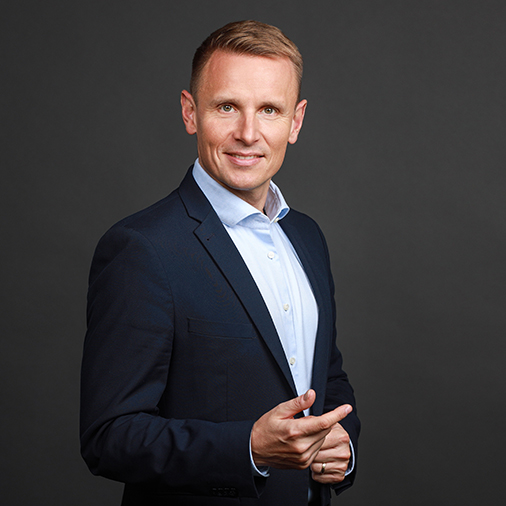
25 September 2024 • 3 minute read
Nearshoring into CEE – a new business strategy for international businesses
International Conference25 September 2024, Warsaw
The recent geopolitical events that couldn’t have been predicted or foreseen – that’s why they are known as black swans – have driven companies worldwide to rethink their strategies for resilient production and efficient supply. The hottest trend is relocating operations back to Central and Eastern Europe, focusing on nearby suppliers and even self-sufficiency.
To keep CEE competitive, we must foster cooperation through friend-shoring among geographically close countries and symbiotic sectors, reducing supply chain lengths and ensuring stability. However, offshoring remains appealing due to lower operating and labour costs despite potential risks.

- Is shortening the supply chain a temporary trend or a mature strategy to protect against more black swans?
- In which areas is nearshoring already a standard? For which sectors will it become a necessity?
- Nearshoring, friend-shoring or perhaps still offshoring?
Don’t miss out – join us and find out how to shape the future of your business strategy.
Why to attend?
- Through the selection of panellists and invited guests, we will create a space to discuss the above issue and encourage the sharing of experiences and best practices that involve the entire CEE region and beyond.
- The conference aims to bring together nearly 150 key business leaders and stakeholders from across Europe, with a particular focus on representatives from the manufacturing, industrial, ICT, real estate, and energy sectors.
- Such a wide range of international participants will provide a platform for cross-industry discussion among sector leaders, as well as valuable networking.
- We have planned 3 main panel discussions, preceded by an opening session and a speech by the Chief Economist of one of the leading banks in Poland.
- The second part of the day will focus on networking and relationship building in a less formal atmosphere.
Registration
Participation in this event is free but registration via the following link is required:
The number of places is limited. The event will be held in English.
DLA Piper hosts
Agenda
08:00 – 09:00 Registration
09:00 – 09:30 Welcoming the guests/Introduction
09:30 – 10:00 Opening session
- Rafał Benecki, Chief Economist, ING Bank
10:00 – 11:15 Panel 1: Is nearshoring an effective way to deal with “black swans”? Lessons learned.
Nearshoring enhances operational flexibility and mitigates risks from unpredictable events such as pandemics and political crises. It boosts supply chain responsiveness and resilience but involves careful market analysis and upfront relocation costs.
- Effectiveness of nearshoring: Which industries have benefited most from nearshoring given recent geopolitical developments?
- Offshoring incentives: What incentives do CEE countries offer to attract nearshoring investment?
Moderator: Jacek Giziński, Co-managing Partner, DLA Piper (Poland)
Panellists:
- Iwona Chojnowska-Haponik, Business Consulting Director, JLL
- Wojciech Cofur, Managing Director Central Europe, Beck & Pollitzer Polska
- Monika Grzelak, Director of Investment Support Department, PAIH (Polish Investment and Trade Agency)
- Dan Virgil Pascu, Vice President, Romanian Competition Council
- Janusz Władyczak, President and CEO, KUKE (Export Credit Insurance Corporation)
11:15 – 11:30 Coffee break
11:30 – 12:45 Panel 2: Relocation and the real estate market – strategies, investment and innovation
Nearshoring is stimulating the real estate market in the CEE region, increasing demand for modern office, warehouse, and industrial space. Sustainable construction and compliance with ESG standards are essential elements of new real estate projects.
- The impact of nearshoring on demand for commercial and industrial property: Which sectors are most in need of new space?
- Infrastructure investment to support nearshoring: What infrastructure projects are required to attract investors?
Moderator: Michał Hink, Partner, DLA Piper (Czech)
Panellists:
- Michał Chodecki, BTS Development Director, Panattoni
- Piotr Dopierała, Supply Chain Director, Auchan
- Adam Jędrzejczak, President, Danfoss East Europe Region
- Karel Stránský, Group Business Development Director, CTP
- Magdalena Uler-Kłeczek, Head of Capital Markets, 7R
12:45 – 13:00 Coffee break
13:00 – 14:00 Panel 3: CEE as a modern technology hub – infrastructure, innovation, cyber security
The CEE region has great potential to become a key technology hub through investment in digital infrastructure and support for innovation. Cyber security and data protection are essential for building modern technology infrastructure.
- Technology potential of CEE countries: What strengths does the region have in terms of technology?
- Technical and digital infrastructure: Which investments are key to developing CEE as a modern technology hub?
Moderator: Ewa Kurowska-Tober, Partner, IPT, DLA Piper (Poland)
Panellists:
- Bartłomiej Czuba, Deputy Head, Structured and Mezzanine Finance, mBank
- Dariusz Jurewicz, Head of Cybersecurity Poland Cybersecurity Operations Manager, HSBC
- Aneta Kocemba, Head of Global Solution Center Societe Generale Poland
- Monika Ściuba, Corporate Data Analysis and Underwriting Department, PZU
14:00 – 14:15 Conference summary/Conclusion
14:15 – 16:00 Cocktail/Networking
More information about the event can be found in the brochure below.




